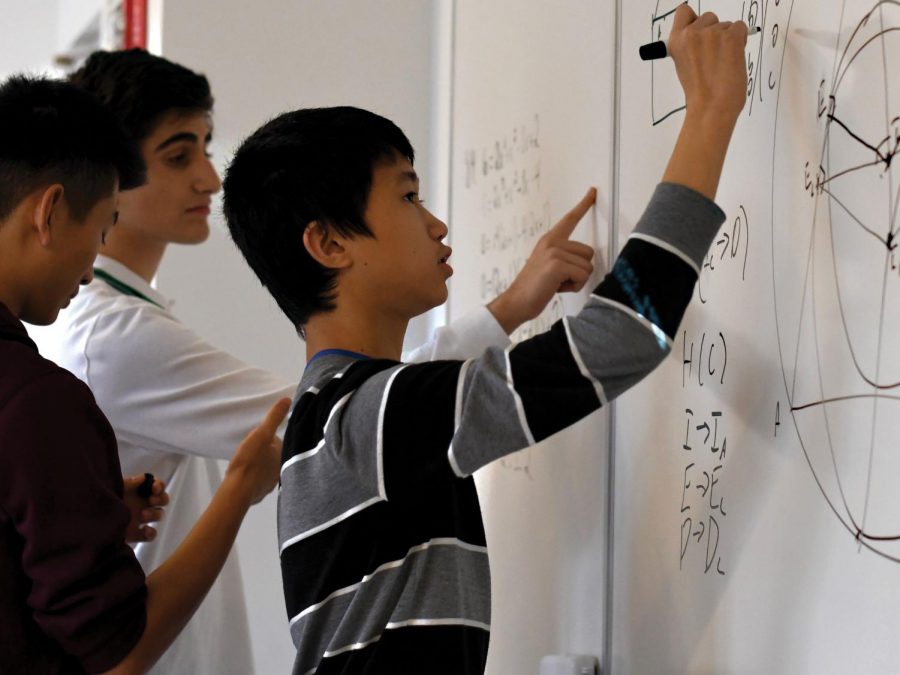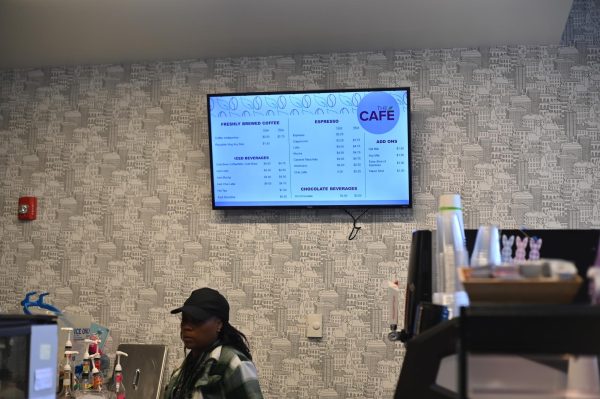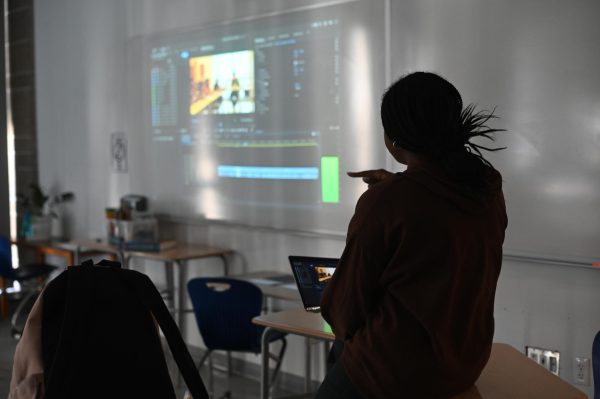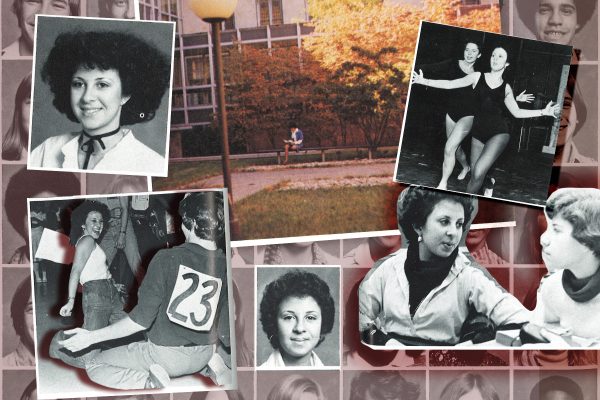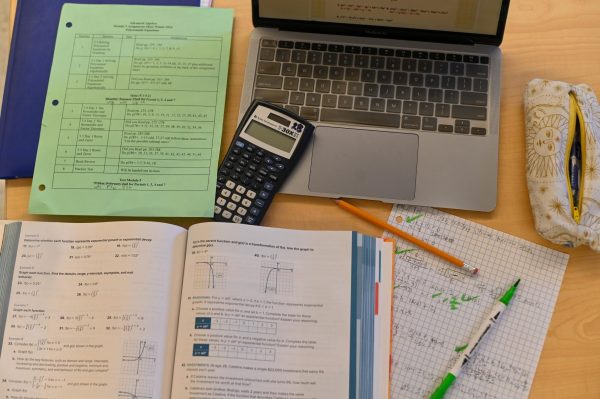No easy answers: Math Team bonds over complicated problems
Kathy Luan
FINDING THE FORMULA: Surrounded by collaborating Mathematics team members, freshman Jeffery Chen works through questions on the white board. He said he enjoys coming up with creative solutions to difficult locgic problems.
November 3, 2019
It’s a well-understood equation: the more effort something requires, the more satisfied you’ll be once it’s finally finished.
For members of the Mathematics Team, there’s nothing like the thrill of unraveling complex patterns and — after working for hours — discovering a solution. But math is a lifelong journey, and they say they’re only getting started.
At the American Mathematics Competition last winter, one student beat the entire U-High math team, a group that achieves among the top in Illinois and the nation. The student was Jeffery Chen, then a Lab eighth grader. He said he’s always enjoyed math, but experiencing this level of success helped to feed his passion.
“After I did well, I liked it more,” Jeffery, now a U-High ninth grader, said. “If you get good at something, you definitely will like it.”
For most students, spending lunch periods writing proofs sounds, at best, like a chore. For Julia Anitescu, however, Math Team meetings are a unique and valuable bonding experience for the dozens of students in the group.
“It’s fun to talk to people who are like-minded about nerdy things,” Julia, a junior said. “Math nerds are kind of hard to find. It’s people who think the same way you do, and at the very least, have a similar outlook on life. It’s a bunch of people who are really committed and driven, and they understand other people who are committed and driven.”
During competitions, Julia said students are given problems quite different from the ones most math students would expect to find on a test. In school, exam problems are meant to be understood, and are written to — with enough preparation and studying — be easily solvable. Competition problems are a little less straightforward.
“In most schools, mathematics is taught as a set of instructions and not a creative work…If it were taught more creatively, maybe like art or music, more people would probably like it.
— Jeffery Chen
“Math in competitions is a lot more about the answer. You’re being scored on whether or not you get the right answer, not how you got there,” Julia said.
Jeffery echoes this sentiment, but adds that the strict time limits and frantic rush to finish problems helps to improve his test-taking skills.
“It definitely helps me with test taking in general. There’s a lot more time pressure in competitions,” Jeffery said. “If I don’t know how to do a problem, I skip it, then come back to it at the end.”
Both Jeffery and Julia say they’ve been studying math since they were young. For Julia, it took some time to love.
“I went to math team, initially and primarily because my dad said, ‘You know what, I think you should do more math because you’re good at it and I think you could like it.’ I’m gonna use my dad’s metaphor here, because he says that math has a delayed satisfaction factor. In order for math to become applied to something, you have to keep working at it in order to get to something that’s even remotely enjoyable,” Julia said.
In the adult world, however, math is less about competitions and more about solving real-world problems. Acknowledging this, Jeffery hopes to one day become a math professor, where he plans to help students experience math as a joyful process, not a grueling means to an end.
“In most schools, mathematics is taught as a set of instructions and not a creative work,” Jeffery said. “If it were taught more creatively, maybe like art or music, more people would probably like it. I probably would give them a pretty hard problem, and they’d have to really think through it. It’d probably take hours, maybe days, to solve it, but once they solve it, it will be really satisfying,”
Julia is less certain about where math will lead her. No matter what, she said her skill and passion will inform everything she studies.
Julia said, “Math is, inevitably, everywhere, and I find it kinda cool.”



